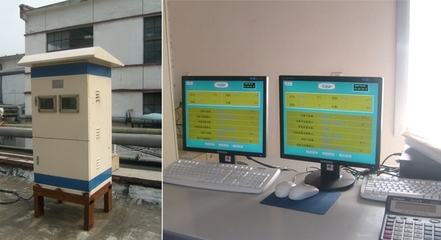There is a need in the Asia-Pacific region to further develop securities regulations and increase the power of securities regulators. Regulators have important advantages over the judiciary because they can potentially be more flexible than judges in making decisions about long standing company law. Regulators may be better able to examine changing market conditions and control both shareholders and corporate insiders more effectively. Moreover, regulators, whose career prospects might be linked to their ability to penalize corporate misdemeanors may have more incentive to confront companies than judges. Securities regulators can normally bring both criminal and civil actions against companies and their executives that can be effective in preventing misbehaviour, stopping wrongdoing and compensating shareholders for illegal or negligent transactions.
There is also an increasing role for stock exchanges in the region. Through listing requirements, the stock exchange can have a substantial influence on the corporate governance of the listed company. At listing companies can be forced to disclose information about corporate governance structures. It should also be forced to provide information about all significant risks using formal risk assessment methodologies.
However, in cases where this IPO practice is commonplace, research shows that ongoing information provision and reporting is often weaker. Increased reporting and disclosure requirements that include non-financial reporting (particularly risk based) are still to be developed, however. At the moment there is a heavy reliance on voluntary reporting initiatives.
If companies do not comply with good corporate governance practices dictated by stock exchanges, then the exchanges must be prepared to enforce requirements, discipline companies that do not obey them and ultimately suspend trading or de-list the company. However, de-listing can harm the very minority shareholders that exchange requirements were trying to protect in the first place. Some stock exchanges are therefore looking at innovative solutions surrounding alternative dispute resolution. Binding arbitration between companies, their officers and shareholders presents itself as an alternative to the court system.
It may be this sort of alternative dispute resolution could open up other possibilities as well. Binding professional arbitration to facilitate redress for employees and other stakeholders might be something that open and engaged companies might well be willing to consider.
The responsibilities of the board of directors are an important part of corporate governance. The bottom line is that boards should seek to maximize value for all shareholders, over time, whilst protecting the interests of other stakeholders. However, many boards will often be dominated by family members. This type of board can be highly effective in furthering the interests of the family but that may, of course, conflict with the interests of others.
Controlling shareholders are often in a position to choose the composition of the whole board and directors may therefore feel obligated towards the controlling shareholders. They might even see themselves as actually representing a family or as someone who votes as directed. Improving the composition of boards and the independence of directors is therefore one very important aspect of corporate governance.
Good corporate governance ensures that the board is accountable to all shareholders and respects the interests of other stakeholders. This often translates into ensuring a good number of independent board members and the use of non-executive directors with specific remits for audits, remuneration policies and even CSR itself. In many countries (including India, Malaysia, Singapore and Hong Kong) board members have a fiduciary duty to act in the interest of the whole company. There is a requirement for them to act with “reasonable skill, care and diligence”. In Thailand the law states that directors must act with “care and honesty”. But elsewhere board members are rarely held accountable for their actions.
The best way to ensure effective boards that act in accordance with good governance principles is to make sure that they are well qualified and trained. They should be incentivised to act in a way that is in the interests of all shareholders and be clear about wider responsibilities to other stakeholders. Directors must at all times reveal potential conflicts of interests and be seen to be independent of, where possible, the controlling shareholders. This is, of course difficult, when many directors of a company may be family members.
There is an important governance role to be played by non-executive directors and in some locations (e.g. Taiwan and the Philippines) a minimum number of independent, non-executive directors are required by law. In India it must be demonstrated that at least a third of the board is independent and in Korea that rises to one half. In Taiwan, Korea and Malaysia the law requires some degree of separation between independent directors and controlling shareholders.
A non-executive director should be an independent and not a manager or executive. However, experience in Asia shows that that does not always ensure independence. Non-executive directors can sometimes still be deferential to management in a wish to maintain their remunerated position. Another problem is that many companies report a shortage of suitably qualified and independent non-executive directors. Non-executive directors are too often recruited from a pool of (mostly) men, know to a number of the controlling shareholders in a particular location. The ‘old boys club’ remains alive and active.
A key variable for the board is its size. Boards need to have a good range of skills from both executive and non-executive directors so that financial and legal knowledge and knowledge of the industry and its issues are all covered. Increasingly, there should be board members able to take into account the interests of wider stakeholders and be a champion for good CSR. But it is important to have sufficient non-executive directors to make the board credible, independent of controlling shareholders and in order to avoid conflicts of interest.
Because of the common nature of company structuring in Asia and the dominance of family based pyramid structures, it is families that are commonly the controlling shareholders of many companies in the region. As a family unit with strong Asian family values, they are able to work together (and alongside other families and friends) in making sure that it is their priorities and wishes that are served by the companies they control (but often only own small parts of). They see little need for openness and transparency outside of the family structure.
This represents one of the biggest challenges for corporate governance in the region. Good governance has to be based on increased transparency and accountability. Perhaps it is also good to demonstrate to these families that where companies have taken the lead to improve transparency and the treatment of minority stakeholders, then they have often been rewarded by higher share prices. But there are other trends in the Asia-Pacific region that is going to force companies to engage in better corporate governance practices.
One of these trends involves the increase of institutional investors in the region. Recent years has witnessed a significant growth of foreign investors in emerging markets along with the development of more locally based pensions funds, investment funds and unit trust providers. Indeed, the fastest growth is now the domestic institutional investment sector and within that the pension sector. Countries such as Korea and Singapore have taken steps to actually encourage people to take out inpidual private pensions plans in the light of an aging and longer living population. Malaysia has a provident fund with quite strict rules on the holdings of domestic equities.
These institutional investors are replacing the more perse minority shareholders and are posing challenges for the controlling shareholders. Institutional investors are longer terms shareholders and want more information about companies and risk management strategies. They are simply demanding more transparency and accountability and are increasingly making good corporate governance part of their investment criteria.
But good corporate governance is also about relationships with other stakeholders and not only shareholders. Indeed, the long terms success of any company is increasingly going to depend on its ability to manage relationships with a whole range of other interested parties. But in the Asia-Pacific region such stakeholder management is often lacking and in many cases stakeholders are not protected in the ways that they should be.
In the context of corporate governance an important stakeholder is the company’s own employees. We know that good employee relationships can increase motivation, reduce absenteeism and increase overall productivity. As a minimum, governance practices should ensure that employees are employed in ways that adhere to national laws, yet we know that in the region this is very often not the case with excessive working hours, poor health and safety and underpayment of staff being quite common. Increasingly, companies are being challenged by their own staff and this is likely to increase with tight labour markets and the implicit support for freedoms of association and collective employee action by some governments in the region.
But companies can go much further than just obeying the law. Corporate Governance can actually be improved through the involvement and participation of workers in good governance practices. In many situations workers’ committees, works councils, supervisory boards with employee involvement, employee representation on boards and the active involvement of trade unions can all add to good governance practices.
In both mainland China and Taiwan it is common for some board members to be appointed with the involvement of employees. In both these locations, as well as in India, Korea, Pakistan, Sri Lanka and Vietnam works councils are mandated by law. In China, India and Vietnam employee participation in the management of a company is a constitutional right.
Employee shareholders can be great advocates for improved corporate governance and leading companies often have schemes to increase this form of participation in the company.
Since the company is the source of their livelihood they have a strong interest in seeing that it is run well and is successful into the longer term. Increasingly, employees are also owners of companies through pension funds and as we have seen these have been a major driving force in corporate governance reform.
Interestingly, it is often employees who are the first to know about transactions or other practices that violate the rights of shareholders and other stakeholders. So called ‘whistleblowers’ that reveal such abuses are an important source of information and thereby protection of the interests of others. However, in Asia ‘whistleblowers’ are rarely protected and may therefore be less willing to reveal information or if they do, are then sometimes subjected to harmful actions themselves, including being dismissed and ‘blacklisted’ but other potential employers. It is important that both countries and companies themselves seek to protect ‘whistleblowers’ and see them as an important safeguard mechanism in corporate governance practices.
Another important stakeholder that needs to be part of corporate governance structures is the creditor. In addition to providing the company with money, creditors are often interested in building long term relationships with companies. They can be sources of long term capital and effective monitors of corporate governance.
Like minority shareholders, creditors need protection from abusive practices such as tunneling. Creditors need also to be protected from highly speculative endeavors that might be portrayed as relatively safe. If risky investments are made at times when net assets are low then the benefits of a risky investment will go to shareholders, but in the case of failure, it will often be the creditor that will absorb the losses.
As with other aspects of poor corporate governance, the poor treatment of creditors will have ramifications for both companies and the countries they are in as creditors become less willing to provide loans, reducing investment and growth. We often see low levels of credit in the least developed countries where risks are seen as high and this hampers the development process.
There is an even wider context to corporate governance and that involves stakeholders more widely and the broader social context of where the company and its supply chains exist. Civil society groups are calling for a greater degree of transparency and accountability and better protection for all stakeholders. Increasingly, NGOs are engaging with the business sector and business has a role in protecting both their own interests but also the interests of their partners and part of good governance practices.
The media, in particular, is an important transmission mechanism for information about companies coming to consumers and others. However, is some Asian countries, the media can be quite passive and under influence from the state and associated organizations (including, sometimes large companies). More press freedom is therefore an important part of encouraging corporate governance at the country level. Much of this broader stakeholder context parallels many of the debates and good practices associated with CSR and they are discussed at length in this publication and therefore are not pursued further here.
The topic of corporate governance is an important one in the Asia-Pacific region where it is generally a lot less developed than we might find elsewhere. Whilst there are many good practices in the region and well developed laws and regulations in countries such as Singapore, in general there is a lot more to do. In particular the fact that so many Asian companies are dominated by controlling shareholders (often families) means that corporate governance may have to be even stronger in this region than elsewhere. Good corporate governance should be seen as good for business, but it is also good for the development process itself. In emerging markets there are often perceived to be higher investment risks than in other locations. But good corporate governance practices can help to mitigate these perceived risks and increase the much needed inward investment into countries. Good corporate governance really is a win-win scenario for all and its further development in the region is much needed.

 爱华网
爱华网


